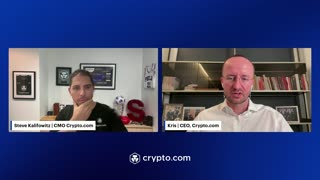Premium Only Content

The Last Generation
Introduction:
In any political ideology, extremism can emerge, and liberalism is no exception. While liberalism, at its core, emphasizes individual freedom, equality, and social progress, there exists a subset of individuals who adopt extreme positions and tactics in the pursuit of their goals. This text aims to shed light on liberal extremists, examining their beliefs, tactics, and the impact they have on society.
Defining Liberal Extremism:
Liberal extremists are individuals who espouse radicalized versions of liberal ideologies. They often hold extreme positions on issues such as social justice, identity politics, economic inequality, and environmental concerns. While liberalism, as a broad spectrum, encompasses a range of perspectives, liberal extremists can adopt an uncompromising and confrontational approach to advancing their agenda.
Tactics and Strategies:
Liberal extremists employ various tactics to promote their causes. This can include aggressive street protests, disrupting public events, or engaging in acts of civil disobedience. While such methods can draw attention to their concerns, they can also lead to social polarization, alienation, and hinder constructive dialogue. Some liberal extremists may resort to online harassment or "cancel culture" to silence opposing viewpoints, which can undermine the principles of free speech and open discourse.
Identity Politics and Group Polarization:
Liberal extremists often place a strong emphasis on identity politics, focusing on issues related to race, gender, sexuality, and other social identities. While acknowledging and addressing systemic injustices is crucial, extreme factions within this movement can perpetuate divisions and promote an "us versus them" mentality. This can lead to increased polarization, hindering efforts to find common ground and fostering an environment of hostility.
Impact on the Liberal Movement:
Liberal extremism can have both positive and negative impacts on the broader liberal movement. On one hand, the passion and dedication of extremists can draw attention to pressing issues and contribute to social progress. Their relentless advocacy can push for necessary change and challenge the status quo. However, their uncompromising nature and confrontational tactics can also alienate moderate liberals, erode public support, and hinder collaboration with other political groups.
Challenges of Overgeneralization:
It is essential to remember that liberal extremists represent only a fraction of the larger liberal movement. Overgeneralizing and equating the actions of extremists with the entire ideology can be misleading and unfair. It is crucial to differentiate between the broader principles of liberalism, which often strive for inclusivity and social justice, and the extreme actions and beliefs of a select few.
Conclusion:
Liberal extremism, like extremism within any political ideology, presents challenges and complexities. While some individuals within this movement employ radical tactics and hold extreme positions, it is important to recognize that they do not define the entirety of liberalism. Constructive dialogue, critical thinking, and a commitment to democratic values can help address the concerns raised by liberal extremists while preserving the core principles of liberalism: freedom, equality, and progress.
-
 LIVE
LIVE
The Quartering
1 hour agoFlag Burning, Free Speech, Church Attack & More With Andrew Wilson
15,111 watching -
 LIVE
LIVE
Steven Crowder
1 hour ago🔴Minnesota Catholic School Shooting Update - Shooter & Manifesto
34,410 watching -
 LIVE
LIVE
The Jimmy Dore Show
56 minutes agoTrump & Newsom Trade Barbs Over HAND SIZE! Cracker Barrel CAVES to Public Pressure!
2,066 watching -
 LIVE
LIVE
Darkhorse Podcast
1 hour agoThe 291st Evolutionary Lens with Bret Weinstein and Heather Heying
201 watching -
 LIVE
LIVE
StoneMountain64
2 hours agoHUNTING FOR THE FIRST WIN BACK ON WARZONE
245 watching -
 1:13:02
1:13:02
Simply Bitcoin
3 hours ago $1.51 earnedINSIDER CONFIRMS 1M Bitcoin Buy INCOMING!! | EP 1319
33.9K -
 1:03:00
1:03:00
Sean Unpaved
2 hours agoCFB Deep Dive: Matt Moscona's Expert Takes on the Gridiron
27.9K -
 27:39
27:39
Crypto.com
1 day ago2025 Live AMA with Kris Marszalek, Co-Founder & CEO of Crypto.com
99.6K6 -
 LIVE
LIVE
SternAmerican
23 hours agoElection Integrity Call – Wed, Aug 27 · 2 PM EST | Featuring Arizona
285 watching -
 1:00:05
1:00:05
Timcast
3 hours agoMASS SHOOTING At Catholic Church In Minneapolis, Children Reportedly Targeted
154K85